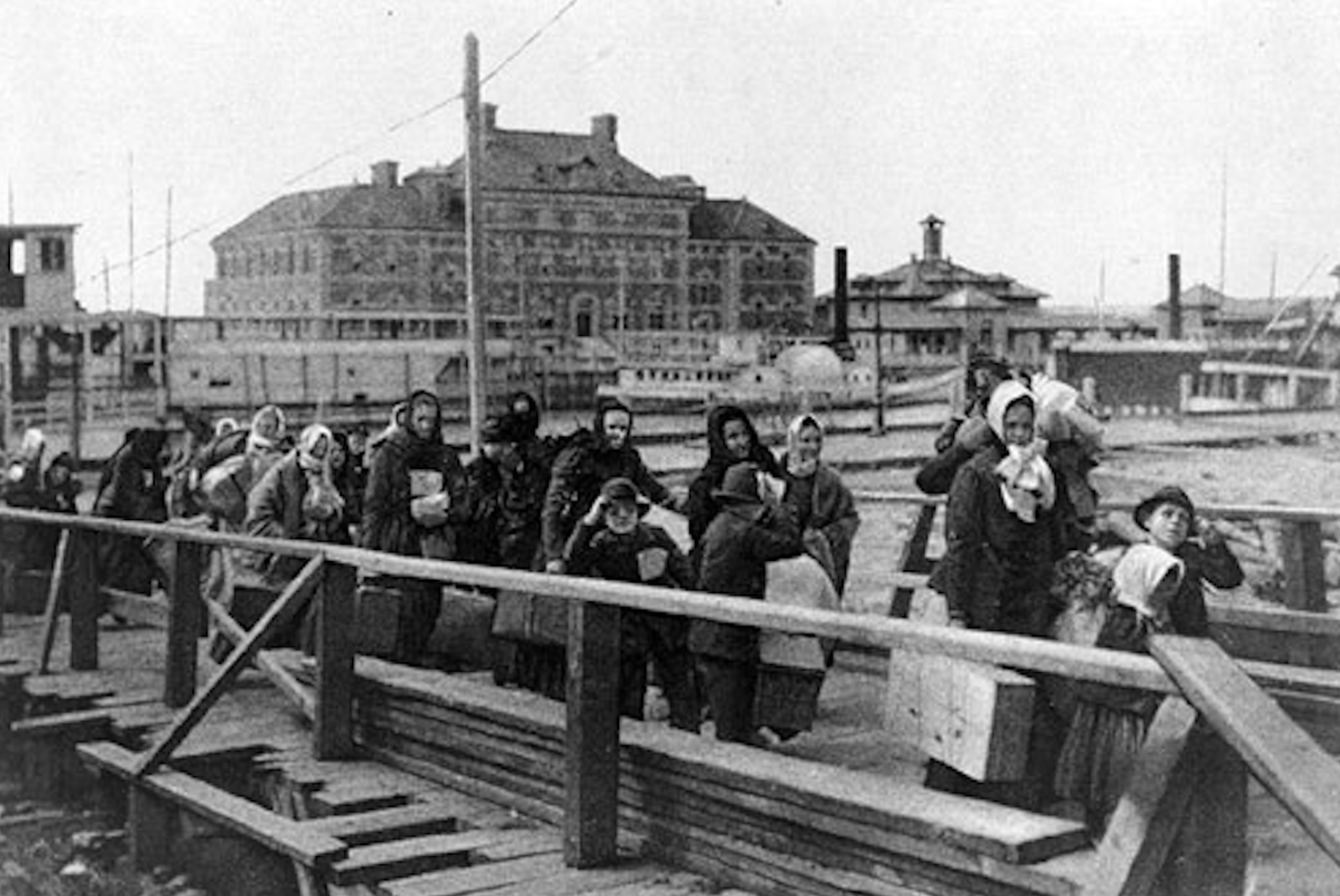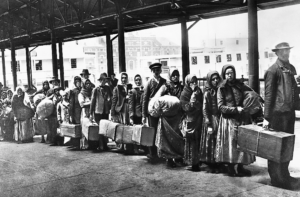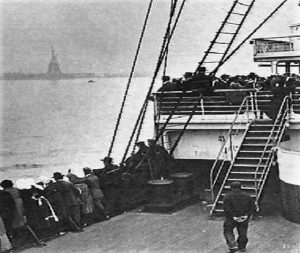By: Tony Traficante, ISDA Contributing Editor
The Way It Was, Echoes of the Past
Sono venuti dalle montagne, dalla campagna, dai villaggi nelle migliaia. They came by the thousands from the mountains, the countryside, hamlets too small to be located on any map.
Many Italians came from the economically-strapped Mezzogiorno: Sicilia, Basilicata, Calabria, Campania, and other southern regions of Italy. They scrimped to save the thirty dollars to book passage to L’America, dove le strade erano lastricate d’oro, where roads were paved in gold.
As they prepared to leave, friends and family gathered in the piazza, weeping, embracing, promising to return. But, some would never go back. Half of those departing were single men, husbands and fathers, some leaving wives and babies behind. The other half were couples and families. They departed their homes by whatever means available, donkey and horse-drawn two-wheeled carts, buses and train.
As third-class steerage passengers, as was the case with most Italians traveling, they ended up in the belly of the vessel. Amenities were severe. “Dorms” were filled with rows of metal bunks stacked two high. Bedding consisted of a straw-filled mattress wrapped with a piece of rough canvas sheeting, a life preserver as a pillow and a lightweight blanket, theirs to keep as a keepsake of their voyage (as if they needed reminding).
Meals weren’t anything to brag about, even when not spoiled. Dining facilities didn’t exist. Eating utensils included a dented metal pail, fork and spoon. The crowded Italians sat on bunks, the floor, but when possible, escaped to ‘al fresco,’ on deck.
Crossing the ocean was a long, miserable, traumatic experience. The smell permeating steerage class, explained by the ship’s staff was just a passing aromatic odor. A euphemism for the atrocious stench of urine, vomit, and other bodily emissions. That, combined with a select variety of vermin, made the place a hot bed of disease and sickness.
And yet, the resilient Italians found time for diversion, on occasion celebrating a marriage or even a birth. Invariably, someone had a concertina, so they passed the time singing favorite songs. If nothing else, women knitted, and the men played briscola, morra o tre sette.
Having arrived at Ellis Island, in crowded barges and herded down gangplanks, they were “greeted” by immigration officials shouting orders, complimented with a few indignities. As they entered the “Reception Hall,” they were struck by a commotion of noise, shouting and a babbling of diverse languages.
No question it would be a long, exhausting day, as inspectors tested the immigrants for physical and mental fitness. The medical exams were most feared. If cursed with a severe malady, they surely would be deported. Even those with minor diseases could be quarantined, for days. There was nothing pleasant about the Ellis processing system. No wonder, the Italians dubbed Ellis Island, L’isola Delle Lacrime– the island of tears! Their apparent relief was immediate when they finally departed Ellis.
On shore, some of the Italians were met by families or friends. Others on their own sought the help of a padrone. Once immigrants themselves, the padrones were helpful, but a few took advantage of the naïve immigrants.
Many Italians made a home in New York, New Jersey and Pennsylvania; others ventured farther west. Whereever they went, they sought the security of Italian communities, close to friends and paesani.
It was a long, journey across the ocean, but it wasn’t over. As they struggled to make a life, the Italians would encounter their share of racial, social and religious intolerances. But, united by their intense faith, family traditions, and enterprising spirit, the Italians persevered!
It was … a new beginning.
Tony Traficante’s articles regularly appear in ISDA’s newspaper, La Nostra Voce. Become an ISDA member today for $25/year and receive La Nostra Voce along with many other benefits and perks.




